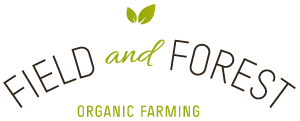
Essential oil distillation waste streams as a potential source of sustainable plant-based repellent products Nr. 1.1.1.1/20/A/096
In
conventional farming, the insects are usually controlled by using
chemical pesticides. In organic farming it is prohibited. Currently,
there is a growing concern about the health and environmental risks
caused by pesticides. Therefore, the support for organic farming is
increasing. The European Union (EU) in the Biodiversity Strategy has set
an aim to decrease the use of chemical pesticides by 50 % until 2030.
Plant-based insect repellents are alternative to chemical pesticides.
Historically, plant products have been successfully used as insect
repellents. Moreover, various previous researcher papers highlight the
use of organic repellents derived from different medicinal plant
extracts.
The cultivation and processing by-products with
high added value potential across the whole production chain are often
discarded as waste due to a variety of factors. The underutilisation of
this valuable resource has negative effects on both the environmental
and economic sustainability of agriculture. A systematic look across the
whole production chain can identify new solutions for moving towards a
waste-free and self-contained production. SIA “Field and Forest”
medicinal and aromatic plant essential oil distillation process
cultivates a large amount of by-products but the potential is not yet
researched.
Objective
To develop
high added value agricultural insect repellents for organic farming
against green peach aphid (Myzus persicae), greenhouse whitefly
(Trialeurodes vaporariorum), and cabbage butterfly (Pieris brassicae)
from medicinal and aromatic plant (chamomile (Matricaria chamomilla),
caraway (Carum carvi) and pine (Pinus sylvestris)) essential oil
extraction by-products. The secondary objective is to gain know-how for
the development and testing of other organic pest repellents.
Activities
- Development of plant-based insect repellent product that includes chemical evaluation and characterization of essential oil distillation process by-products – pine, chamomile and caraway extracts.
- Testing of plant-based insect repellent in the laboratory to determine the effects on green peach aphid, greenhouse whitefly and cabbage butterfly.
- Insect repellent testing in the laboratory on cucumber and cabbage plants.
- Development of product prototype with agricultural insect repellent activity against green peach aphid, greenhouse whitefly and cabbage butterfly. The product must be compatible with conventional and organic farming practices.
- Knowledge transfer to the general public as well as the scientific community and practitioners.
Results
- At least one plant-based insect repellent product prototype developed compatible with organic farming regulations. Repellent prototypes for each of the 3 insect species will be created, however primary objective is to develop one prototype that would repel all 3 insect species.
- Gained know-how on the development of insect repellents for organic farming.
Duration: 1st of February 2021 – 30th of November 2023
Leading partner: Institute for Environmental Solutions
Partner: SIA “Field and forest”
Project scientific manager: PhD Laura Pastare, [email protected]
Funded by European Regional Development Fund, as a part of 1.1.1.1 measure “Support for applied research” and specific objective 1.1.1 “Improve research and innovation capacity and the ability of Latvian research institutions to attract external funding, by investing in human capital and infrastructure”, Nr. 1.1.1.1/20/A/096 and project partners.
Total budget: 695 993.04 EUR. ERAF covers 499 781.81 EUR of the total budget costs. Rest is co-funded by project partners.
